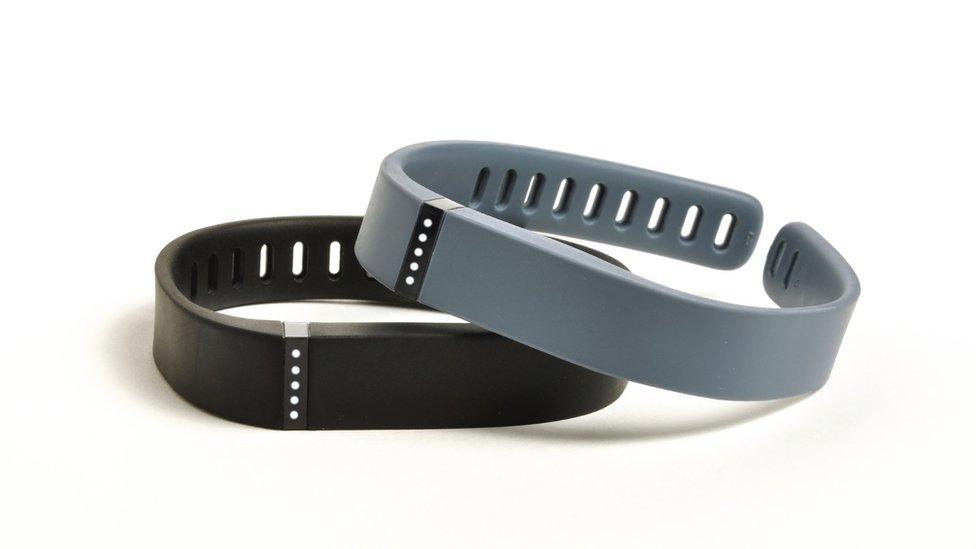Patient power and technology 'changing medicine'
- Published

The internet and high speed broadband have transformed a wide range of consumer led businesses in the last two decades. Think banking, travel agencies, film distribution, book-selling and food retailing. Could healthcare be on the verge of a similar revolution over the next 20 years or so?
It's a question being asked frequently in Silicon Valley.
American health technology entrepreneurs are looking at the potential for centralised health systems like the NHS to lead the way on behalf of all patients in society rather than just those who can afford it.
Ensuring that people currently without smartphones or laptops can benefit from developments in personalised medicine will be the major challenge.
Health Secretary Jeremy Hunt touched on this issue in delivering the annual Health Service Journal lecture.
He pointed to an "inescapable, irreversible shift to patient power that is about to change the face of modern medicine beyond recognition".
Technology and the use of data, he argued, were driving changes which would benefit both patients and clinicians.
'The patient will see you now'
The internet has empowered patients and allowed them to carry out exhaustive research about their symptoms and conditions. Traditional assumptions about the doctor knowing best are outdated.
Mr Hunt quoted the thoughts of the US cardiologist, and expert in digital health, Prof Eric Topol.
He has written a book called 'The Patient Will See You Now', and talks of the death of medical paternalism and big changes in the relationship between doctor and patient.
The most radical thinkers in this field argue there could come a time when people will never need to go to a doctor for diagnosis.
If a single drop of blood contains 300,000 biomarkers which can be analysed by a computer, they argue, a patient's chances of developing medical conditions can be assessed before they happen.
Throw in personalised genetic sequencing and an individual's health prospects can be mapped as never before.
Technology, so the argument goes, will deliver both predictive power and detailed monitoring of an individual's state of health.

Fitness trackers are increasingly common
Smartphone apps covering fitness are commonplace and new innovation with diagnostics is seen to have immense potential.
Those familiar with this field, including David Wood whose career included stints at Psion and Symbian, believe that mobile telephony will help patients manage their own health.
Smartphone apps under development or already available outside the UK include a low-cost blood testing system, a microscope attachment for mobile phones, a breath test facility which can help detect diseases and an add-on facility to monitor heart rhythm disturbances.
These allow patients to gather their own data and images remotely which can then be assessed by a doctor. A straightforward condition might be diagnosed and dealt with using an e-prescription without the patient ever needing to go to a surgery.
Pie in the sky?
This blue skies thinking excites leading figures in the NHS. But they are aware of the potential pitfalls.
The Talk Talk saga has highlighted the dangers of data being stolen online by hackers.
The theft of sensitive patient data could destroy public confidence overnight in the health technology agenda.
The Department of Health has asked the American health IT expert Prof Bob Wachter to report on the digital security issues which need to be addressed.
Some might argue this is all pie in the sky. At a time when the NHS is facing unprecedented patient demand for day to day healthcare, the idea that smartphones can take the strain might seem fanciful.
What counts for patients now is seeing their GP or getting a hospital appointment and ensuring they get the best possible care.
The internet entrepreneur Baroness Martha Lane Fox is carrying out a review on digital health innovation for the government.
Her report is due out by the end of this year. It will address the challenge of ensuring that the most vulnerable patients, many unable to afford sophisticated mobile phones, can benefit from the march of technology.
Tim Kelsey, Patients and Information Director at NHS England, believes the Lane Fox review will kick-start the wider debate about digital healthcare.
There is a widespread acknowledgement that if people are better enabled to manage their own health and conditions at home rather in a clinic or hospital the NHS will be more sustainable in the long term.
At a time of intense pressure on the health service, technology could offer some answers.